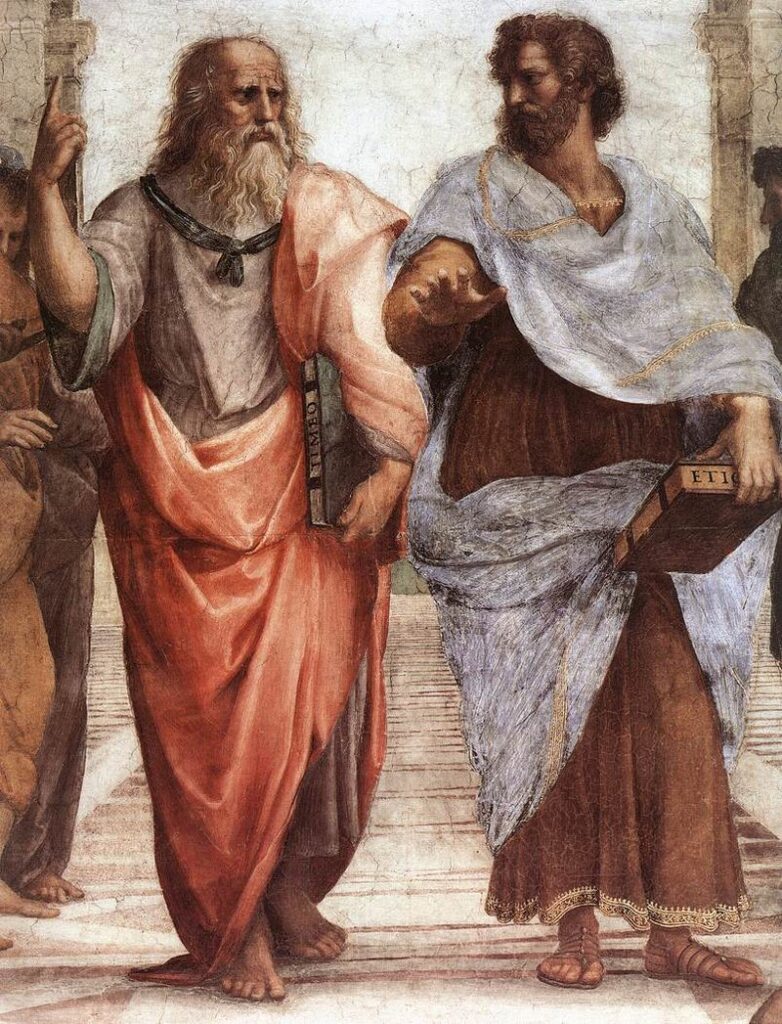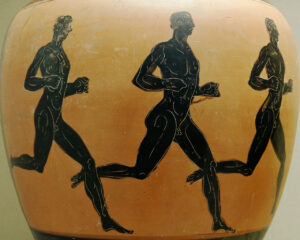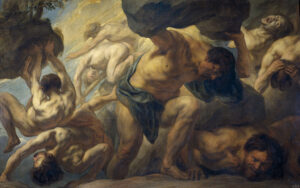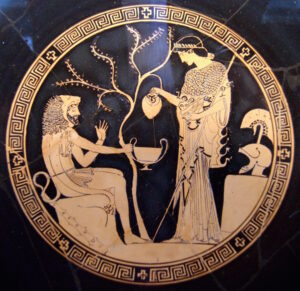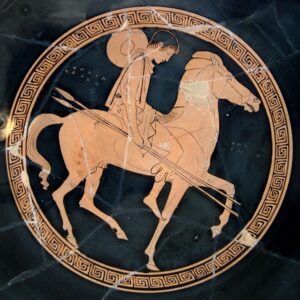Plato was an ancient Greek philosopher and student of Socrates. He is considered one of the most important figures in the development of Western philosophy, and his ideas and writings have had a profound influence on Western culture and thought. He founded his famous Academy in Athens, which was one of the first institutions of higher learning in the Western world. As well, he was also a prolific writer, leaving behind a wealth of philosophical works that have influenced generations of thinkers. As such, historians consider him to be one of the most important philosophers from ancient Greece.
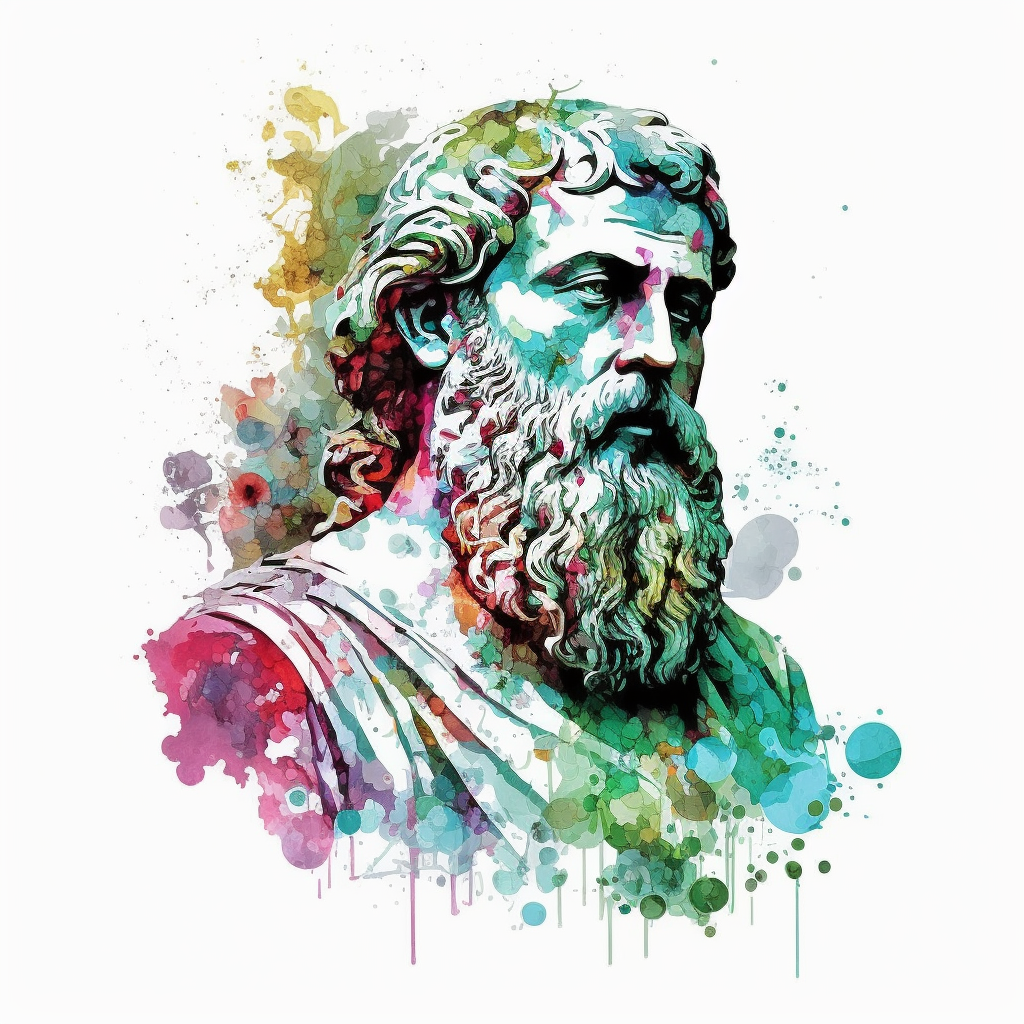
Early Life and Education of Plato
Unfortunately, historians do not have a complete understanding of his early life due to the lack of reliable records or accounts from the time. As such, we do not fully understand Plato’s early life such as his date of birth. Regardless, historians believe that he was born into an aristocratic family in Athens in the 420s BCE. (428/427 or 424/423 BCE)
Furthermore, historians have identified that Plato was a student of Socrates, who was another influential philosopher from ancient Greece. He was deeply influenced by Socrates’ ideas and methods, and after Socrates’ death, he left Athens and traveled extensively in Greece and Italy, studying with various other philosophers and mathematicians.
It was during these travels that he was exposed to the ideas of Pythagoras, which greatly influenced his own philosophical beliefs. After returning to Athens, Plato founded the Academy, a school of higher learning, where he taught and developed his own philosophy. It was one of the first institutions of higher learning in the Western world.
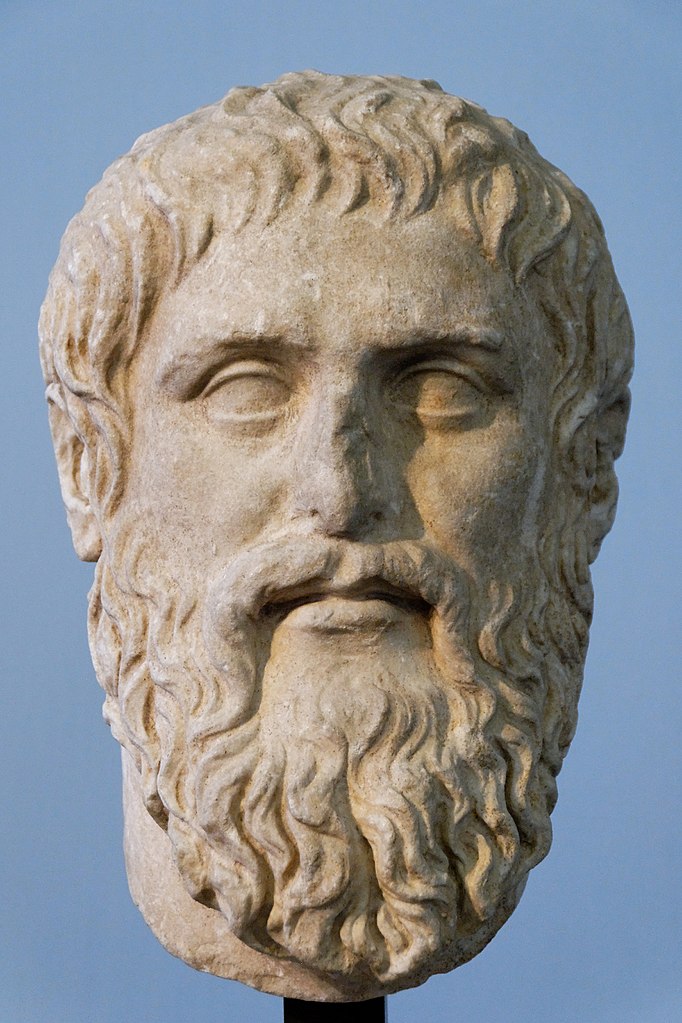
Plato’s Philosophy
He is most famous for his philosophical dialogues, which are a series of written conversations between characters discussing various philosophical topics. Some of his most famous dialogues include “The Republic,” “The Symposium,” and “The Timaeus.” In these dialogues, he discusses a wide range of philosophical topics, including ethics, metaphysics, politics, and epistemology.
Plato also made significant contributions to the field of mathematics. He is credited with the discovery of the five Platonic solids and is known for his definition of a right angle. In addition, he made important contributions to the study of ethics and political philosophy, proposing the idea of a philosopher-king, a ruler who is guided by wisdom and virtue.
Significance of Plato
As stated above, Plato was one of the most important philosophers in ancient Greece. His ideas, theories and contributions had a profound impact on the culture of ancient Greece.
Furthermore, his ideas have had a profound influence on Western philosophy, science, and mathematics. His political ideas have had an impact on the development of political theory. His dialogues have also had a lasting influence on literature, and his writing is considered to be some of the finest in the Western tradition.
Also, Plato’s Academy was also highly influential, serving as a model for later institutions of higher learning, including modern universities and colleges. Today, the Academy is remembered as one of the first institutions of higher learning in the Western world and is considered an important moment in the history of Western education.

